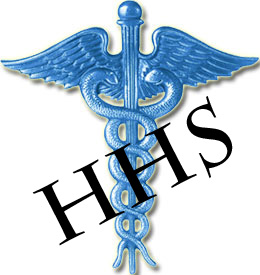 Primer on HHS Mandate
Primer on HHS Mandate
If you are already familiar with this background and understand what the HHS Mandate requires, you can skip to the “Answering Common Objections” section of this article, but I would recommend that you spend time reviewing again the background of this grave attack on religious liberty.
The Patient Protection and Affordable Care Act (“PPACA”, also referred to by the media as “Obamacare”) was passed by the U.S. Congress and signed into law by President Obama on March 23, 2010. As with all laws, Federal Regulations are developed to define how to comply with the law.
On August 1, 2011, the U.S. Department of Health and Human Services (“HHS”) issued a “final interim rule” (the “HHS Mandate”) that would require almost all private health care plans to provide their members, at no out of pocket cost to the insured, access to female sterilization procedures and contraceptive prescription drugs, including abortion-inducing drugs.
A very narrow “religious exemption” was offered to religious employers who hire members of their own faith, serve only members of their own faith, and whose mission is to inculcate that faith. This exemption would not cover religious schools, hospitals, charities and other such groups. It would not cover health insurance providers or any other private employer… or even private individuals in the market for health insurance. In other words, the exemption would likely protect only small churches with minimal staffs and no outreach to members of other faiths.
This regulation would require compliance effective August 1, 2013 for those religious-affiliated groups who object… one year later than the rest of the population… one additional year to figure out how to violate conscience.
Answering Common Objections to the Catholic Position
It is imperative that each of us who oppose this regulation equip ourselves to engage in charitable, but firm and persuasive, dialog with friends and family. It is up to us, along with our religious leaders, to bring light to this attack on Religious Freedom and Conscience.
Answers to eight common objections to the Catholic position follow:
Objection #1: Why is there the continuing concern? President Obama has already modified the HHS Mandate to alleviate the concerns expressed by the Catholic Church.
Answer: This is simply false.
First, the “accommodation” announced by President Obama on February 10, 2012, was not included in the final language of the regulation. The original language of the “interim final rule” has now been published without change in the Federal Register.
Second, administration officials have informed the United States Conference of Catholic Bishops that their concerns are “off the table”, that is, no changes will be made to accommodate the bishops’ concerns. The bishops were told by administration officials that they should learn from enlightened Catholics who disagree with the bishops.
Third, even if the language of the accommodation had been included, the effect would have been even worse in that it would have required exempt churches to provide the mandated drugs and services using deceptive accounting techniques and summary plan description language to hide the government-forced cooperation of the Catholic Church.
Fourth, remember that the HHS Mandate is opposed by many more religions than the Catholic Faith. Orthodox and Protestant Christians, Jews and Muslims also object. The concerns addressed have not been alleviated.
Objection #2: The opposition of the Catholic Church to the HHS Mandate is just another example of the Church promoting discrimination against women.
Answer: The HHS Mandate requires that health insurance plans provide coverage for female surgical sterilization and prescription drugs that both prevent conception and end the life of a human child already conceived.
The Church promotes the dignity of life of every human person, male and female. It opposes both male and female surgical sterilization. It opposes the killing of all unborn children, male and female. It promotes and defends the right to life of both male and female children.
The HHS Mandate forces women to purchase coverage for prescription drugs and procedures without regard to the moral dictates of their consciences. The HHS Mandate forces men and women sponsors of health plans to provide this same coverage, again without regard to the moral dictates of their consciences.
Objection #3: The Catholic Church, in opposing the HHS Mandate, is attempting to impose its morality on people who disagree with its beliefs.
Answer: The opposition to the HHS Mandate by the Catholic Church intends to prevent the government from forcing the Church and others who morally oppose these drugs and procedures from having to offer and pay for them as part of their health insurance plans and to prevent the government from forcing members of such plans from having to pay for them, even indirectly.
Objection #4: There are instances when such drugs and procedures mandated by HHS are necessary to treat health issues unrelated contraception.
Answer: The Church is not opposed to all such drugs and procedures in those cases and already supports and provides health insurance plans that cover them in these cases. Of course the person receiving the treatment should become knowledgeable of the moral implications involved in their specific case.
Objection #5: The Catholic Church should keep out of my bedroom and not tell me what I can and cannot do.
Answer: The Catholic Church simply proclaims the Gospel and all its moral truths as it has been given to understand them. The individual decides whether or not to listen to what the Church teaches. The Church seeks to (a) help individuals to properly form their consciences and (b) to prevent the government from imposing its will on individuals, in violation of their consciences, who agree with the Church’s moral teaching.
The Church seeks to help you arrive at a morally good decision. It asks that the government not force others to pay for your choices when your choices violate their consciences.
Objection #6: The Church’s teaching against contraception doesn’t matter; after all, one survey indicates that 98% of Catholic women have used contraception within the 3 months preceding the survey.
Answer: The results of the survey are skewed and do not reflect reality. The percentage is much smaller. But set that argument aside and assume that the reported conclusion of the survey is accurate. So what?
(1) The Church also teaches that gossip, detraction and calumny are morally sinful, yet many people engage in such behavior – that does not make such behavior morally good. Moral truth does not depend on popular vote. Cheating on a test would not be made morally good, even if the entire student body cheated. All parents have had to deal with a child saying, “But everyone is doing it.” Parents know how to respond, so should you.
(2) The opposition to the HHS Mandate by the Church is not restricted just to contraception. It is also concerned with the abortifacient nature of the contraceptives mandated. Many contraceptive treatments rely on chemical abortion as a part of their operation to “prevent” pregnancy.
Objection #7: The government is not infringing on your First Amendment Freedom of Worship with the HHS Mandate. Why does the Church insist that this is a constitutional issue?
Answer: The Church seeks to have the First Amendment respected which recognizes the right of the individual and religious groups to practice their faith without interference by the government or others.
When this nation was founded, the founders recognized certain natural rights that were possessed by individuals – rights that derive not from the new government, but from nature (or God). The first Ten Amendments, known as the Bill of Rights, recognized these personal freedoms and limited the power of government to intrude in these areas.
The First Amendment to the United States Constitution reads, “Congress shall make no law respecting an establishment of religion, or prohibiting the free exercise thereof; or abridging the freedom of speech, or of the press; or the right of the people peaceably to assemble, and to petition the government for a redress of grievances.”
We do not possess simply a right to worship within the walls of a church, but also to practice what our religion teaches… in the home and in the public square. The government’s attempt, to force employers and individuals to violate their consciences, is an infringement of their First Amendment rights. This attempt appears to be a part of a growing pattern by the government to redefine religious liberty to be what happens within the walls of the church building – thus the use of the erroneous phrase, “Freedom of Worship”, by government officials.
Objection #8: But the government is only seeking to make necessary preventative health services available to all women. Surely this is for the common good. How is that an infringement of anyone’s rights under the Constitution?
Answer: The First Amendment guarantees the citizens of the United States to practice their religion as discussed in No. 7 above. The Constitution prohibits the government from deciding what these rights are. The people of the United States individually make that determination unless a compelling reason exists for the government to override the decision.
The prescription drugs and procedures mandated by HHS are already widely available and accessible, so on that basis alone, there exists no such compelling reason.
The phrase, “preventative health”, so often used to describe the objective of the HHS Mandate, is a misnomer. Preventative health services should describe the efforts to prevent disease. Pregnancy, that is, carrying an unborn child, is not a disease. The Church does not generally oppose such treatments included in HHS Mandate when they treat disease.
Into the deep…
Related Article – The HHS Mandate and Conscience Made Simple – Five Things You Should Do Now
Deacon Mike Bickerstaff, Editor-in-Chief for The Integrated Catholic Life™, is the Director of Adult Education and Evangelization at his parish and a deacon of the Roman Rite for the Archdiocese of Atlanta.
Please help us in our mission to assist readers to integrate their Catholic faith, family and work. Tell your family and friends about this article using both the Share and Recommend buttons below and via email. We value your comments and encourage you to leave your thoughts below. Thank you! – The Editors














